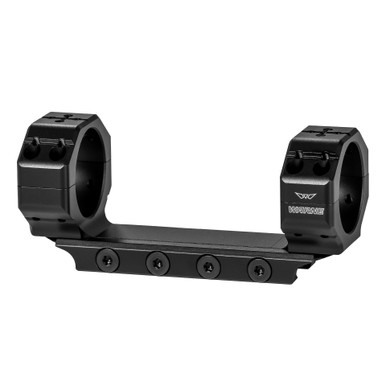I've been mounting my own scopes for over 20yr (actually since before LL put this site together...) and I really don't do a lot of saving up for mounts. I use the best I can afford, but (and I know his will sound familiar to a lot of folks here) I've never sampled any from the top shelf, etc. My rifles shoot at least as well as I can.
There is some relevance between cost and reliability, but once you're up and off the bottom shelf or two, you're into my realm; and I've never broken a scope mount or damaged a scope because the mounts cost too little. I have had some failures due to treating my equipment badly, or irrationally; but for normal usage, the middle of the road works well enough for me and for a lot of the folks here who are like me. Handling my gear with care may be saving me some money; but I'd do things the same way regardless of pricing.
There is also some sense to building a rifle for the sake of excellence, and spending more in the process. It's just not something I would, or could, do.
Out behind the targets at 1000yd, running target duty, one gets some of the best conversations and advice I've even gotten. Folks back there tend not to talk about cost as much as they do about skill. It was from them I learned the ancient truism, "You can't buy your way into the 'X' Ring".
I might add the following to that, "...but you can buy your way out of it...". By this I would mean that bargain basement gear is seldom found among the winners' equipment.
In general, I usually end up with Vortex rings, etc.; some of which are actually made by manufacturers of the more expensive products. Some of the names get some of their stuff from out of house.
I'm a big (tall) guy and some things, like shorter barrels, just don't make as good sense for me as for others. For me, a purchase that accomplishes the needed task, and still leaves some cash for additional ammo, or reloading supplies, is the better choice.
Experienced shooters have resolved such questions as they gained that experience. New shooters tend to believe that higher price tags mean better gear (and often that's true), and that by spending the extra, they become better shooters. If that's true, it's a rare thing; rare enough that I've never actually seen it happen. There are a lot of us who overestimate both our skills and our needs. First, the skills; then, the upper shelf gear.
Good scores come from only one thing (once the basic equipment needs are fulfilled), and that's good training combined with good practice.
Greg




